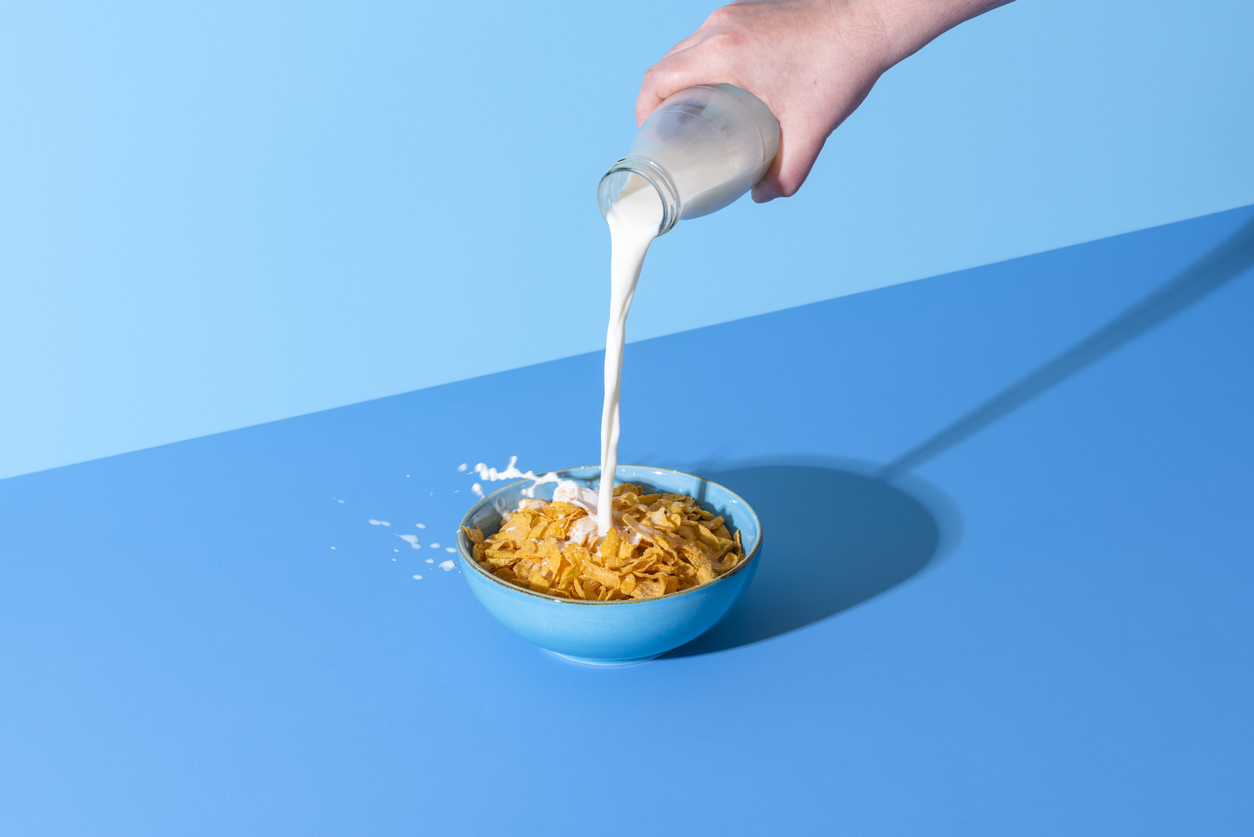Exploring the Flourishing Breakfast Cereal Industry in Nigeria: An In-Depth Look with Wigmore Trading
Exploring the Flourishing Breakfast Cereal Industry in Nigeria: An In-Depth Look with Wigmore Trading
Breakfast is the most important meal of the day, and for many Nigerians, it starts with a bowl of delicious and nutritious cereal. But have you ever wondered about the fascinating journey behind your favorite morning staple? Join us as we dive into the flourishing breakfast cereal industry in Nigeria, uncovering its secrets, trends, and innovations that keep us craving more. And who better to guide us through this captivating exploration than Wigmore Trading – a leading player in the Nigerian market? So grab your spoon and get ready to embark on an in-depth look at how breakfast cereals have become an integral part of our daily lives here in Nigeria.
Introduction to the Nigerian Breakfast Cereal Industry
Introduction:
Breakfast cereals have become a staple in many households around the world, and Nigeria is no exception. The Nigerian breakfast cereal industry has seen tremendous growth in recent years, with more and more people incorporating these convenient and nutritious options into their morning routines.
In this section, we will dive into the history of the Nigerian breakfast cereal industry, its current state, and its future potential. We will also explore the factors that have contributed to its success and discuss some notable players in the market.
History of Breakfast Cereals in Nigeria:
The concept of breakfast cereals originated in the United States during the mid-19th century. It wasn’t until much later that these products made their way to Nigeria. In fact, it was not until the late 1980s that Kellogg’s first introduced its Corn Flakes to the Nigerian market.
Initially, breakfast cereals were seen as a luxury item due to their relatively high cost compared to traditional Nigerian breakfast options such as akara (bean cakes) or moi moi (steamed bean pudding). However, with urbanization and changing lifestyles in Nigeria, there was an increasing demand for convenient and healthy breakfast options.
Current State of the Industry:
Today, the Nigerian breakfast cereal industry is booming with a variety of local and international brands available on store shelves. According to Euromonitor International, sales of ready-to-eat cereals reached 4 billion Naira (equivalent to approximately $11 million USD) in 2019 alone.
Historical Overview of Breakfast Cereals in Nigeria
The consumption of breakfast cereals has been a relatively recent trend in Nigeria, with the first introduction of commercially produced cereals in the late 19th century. Prior to this, traditional breakfast options such as porridges and starchy meals were the norm for Nigerians.
In the early 1900s, the British colonization of Nigeria brought about an increase in Western food influences, including packaged and processed foods. This led to the emergence of imported breakfast cereal brands such as Kellogg’s and Quaker Oats, which were primarily targeted towards expatriates and affluent Nigerians.
However, it wasn’t until the 1980s that locally produced breakfast cereals began to enter the Nigerian market. This was driven by a growing middle class who desired convenient and healthy breakfast options for their families. Domestic companies like Nasco Foods Ltd., Crown Flour Mills, and Honeywell Flour Mills emerged as major players in this industry.
One significant milestone for the Nigerian breakfast cereal industry was in 1998 when Nestle Nigeria launched its popular brand “Golden Morn” – a locally produced fortified cereal made from corn, sorghum, soybeans, and other grains. This marked a shift towards more diverse and nutritious options for consumers.
Over time, more local manufacturers entered the market with their own versions of breakfast cereals tailored specifically to suit Nigerian tastes. Some examples include “Power Start” from UAC Foods Limited and “Good Morning Snacks” from Dangote Group.
The Rise of Wigmore Trading in the Industry
Wigmore Trading has become a major player in the breakfast cereal industry in Nigeria, with its rise being one of the most notable success stories in recent years. The company has quickly established itself as a leading supplier and distributor of various breakfast cereals to retailers and consumers across the country. In this section, we will take a closer look at how Wigmore Trading rose to prominence in the industry.
The origins of Wigmore Trading can be traced back to 2002 when it was founded by two young entrepreneurs who saw an opportunity in the growing demand for breakfast cereals in Nigeria. At that time, there were only a few players in the market, and they mainly catered to high-end customers due to their premium pricing. This created a gap for affordable yet quality breakfast cereal options for the average Nigerian consumer.
With this vision in mind, Wigmore Trading started importing popular brands such as Kellogg’s and Nestle from Europe and South Africa, which were highly sought after by Nigerians. They also began producing their own brand of breakfast cereals under the name “Wheatie’s” using locally sourced ingredients, making it more accessible and affordable for consumers.
One of the key factors that contributed to Wigmore Trading’s rapid growth was its commitment to quality control. The company ensured that all products met international standards and underwent rigorous testing before being distributed. This instilled trust among consumers who were wary of purchasing imported goods due to concerns about product safety.
Types of Breakfast Cereals Produced by Wigmore Trading
Wigmore Trading, a leading supplier of breakfast cereals in Nigeria, offers a wide range of high-quality and nutritious options for consumers. With the growing demand for convenient and healthy breakfast options, the company has expanded its product line to cater to different tastes and preferences. In this section, we will explore the various types of breakfast cereals produced by Wigmore Trading.
1. Corn Flakes:
Corn flakes are one of the most popular breakfast cereals worldwide, and Wigmore Trading offers a delicious and crunchy version that is loved by Nigerians. Made from milled corn, these flakes are fortified with essential vitamins and minerals like iron and B vitamins. They are low in fat and sugar, making them an excellent option for those looking for a healthier breakfast choice.
2. Wheat Flakes:
Wheat flakes have become increasingly popular in recent years due to their high fiber content and low glycemic index. Wigmore Trading’s wheat flakes are made from 100% whole grain wheat, making them a wholesome choice for breakfast. They are also enriched with nutrients like folic acid, which is essential for maintaining good heart health.
3. Oatmeal:
Oatmeal is another popular cereal option offered by Wigmore Trading. It is made from rolled oats that provide numerous health benefits such as lowering cholesterol levels and improving digestion. Oatmeal is also rich in antioxidants, vitamins, minerals, and fibers that keep you feeling full for longer periods.
Ingredients Used and Their Sources in Nigeria
Nigeria is well-known for its diverse and vibrant food culture, with a wide array of ingredients that are used to create delicious dishes. When it comes to the breakfast cereal industry, this is no different. In fact, many of the ingredients used in Nigerian breakfast cereals are sourced locally from the country’s rich agricultural landscape.
One of the main ingredients used in Nigerian breakfast cereals is corn. Corn is a staple crop in Nigeria and is grown abundantly across the country. It is used to make various products such as cornmeal, maize flour, and corn flakes – all of which are commonly found in breakfast cereals. The majority of corn used in local Nigerian brands comes from small-scale farmers who grow it on their own land.
Another popular ingredient found in Nigerian breakfast cereals is wheat. Although not native to Nigeria, wheat has become an important crop for both domestic consumption and exportation. Wheat flour is widely available in Nigeria and is used to produce a variety of breakfast cereal products such as wheat flakes and muesli.
Oats are also a key ingredient in Nigerian breakfast cereals, particularly rolled oats which are popularly used for making porridge or oatmeal. While oats are not typically grown in large quantities within Nigeria itself, they can be easily imported from neighboring countries such as Ghana.
Production Process and Quality Control Measures at Wigmore Trading
At Wigmore Trading, we take great pride in our production process and place a strong emphasis on quality control measures to ensure that our breakfast cereal products meet the highest standards. Our commitment to excellence is evident from the moment our raw materials are sourced to the final packaging of our finished goods.
Sourcing of Raw Materials:
We understand that the key to producing high-quality breakfast cereals lies in sourcing top-grade raw materials. This is why we have established strong partnerships with trusted suppliers and farmers who provide us with premium quality grains, such as wheat, corn, oats, and rice. These grains undergo thorough testing for purity, moisture content, and other quality parameters before being approved for use in our production process.
Milling Process:
Once the grains are sourced, they go through a rigorous milling process using state-of-the-art machinery. Our milling process involves multiple stages that ensure the removal of any impurities or foreign matter from the grains. This helps us maintain consistency in texture and taste across all our cereal products.
Mixing and Flavoring:
After milling, the grains are mixed together according to carefully crafted recipes developed by our team of food technologists. We use natural ingredients like honey, fruits, nuts, and spices to add flavor to our cereals without compromising on their nutritional value. The mixing process is closely monitored to ensure that each batch meets specific standards for taste and texture.
Current Market Trends and Consumer Preferences in Nigeria
The breakfast cereal industry in Nigeria has been steadily growing over the past few years, with an increasing demand for convenient and healthy breakfast options. In this section, we will delve into the current market trends and consumer preferences that are driving this growth.
1. Increased Health Awareness:
One of the major factors contributing to the growth of the breakfast cereal industry in Nigeria is the rising health consciousness among consumers. With a growing concern about lifestyle diseases such as obesity, diabetes, and heart diseases, more and more people are looking for healthier breakfast alternatives. This has led to a significant increase in demand for nutritious cereals that offer a balance of taste and health benefits.
2. Preference for Convenience:
In today’s fast-paced world, convenience is key for many Nigerians when it comes to food choices. Busy lifestyles and hectic work schedules have made it challenging to prepare traditional breakfast meals from scratch. As a result, there is a growing preference for ready-to-eat or easy-to-prepare breakfast options like cereal that can be consumed on-the-go without compromising on nutrition.
3. Influence of Western Culture:
The influence of western culture in Nigeria has also played a significant role in shaping consumer preferences towards breakfast cereals. With an increase in exposure to international cuisines through media and travel, Nigerians are becoming more open to trying new foods from different cultures. This has resulted in a higher acceptance of cereals as part of their daily diet.
Challenges Faced by the Breakfast Cereal Industry in Nigeria
The breakfast cereal industry in Nigeria has seen significant growth and development over the years, but it is not without its challenges. In this section, we will discuss some of the major challenges faced by the breakfast cereal industry in Nigeria.
1. High production costs:
One of the main challenges faced by the breakfast cereal industry in Nigeria is high production costs. The cost of raw materials such as grains, sugar, and packaging materials can be quite expensive, leading to higher production costs for companies. This makes it difficult for manufacturers to offer their products at competitive prices and affects their profit margins.
2. Limited access to quality raw materials:
Another challenge faced by the breakfast cereal industry in Nigeria is limited access to quality raw materials. Most of the grains used in producing cereals are imported from other countries, which can result in delays and increased costs due to transportation and import duties. Additionally, there may also be issues with inconsistent supply and quality of these raw materials, further impacting production processes.
3. Competition from traditional Nigerian breakfast options:
Nigeria has a rich culinary culture with many traditional breakfast options that are deeply ingrained in people’s daily routines. These include dishes like akara (bean cakes), moi-moi (bean pudding), or pap (fermented cornmeal porridge). These local options are more affordable and readily available than packaged cereals, making them strong competitors for the breakfast market share.
Future Outlook for the Industry with Wigmore Trading
As we continue to delve into the world of breakfast cereal in Nigeria, it is important to also consider the future outlook for this industry, especially with the help of a leading player like Wigmore Trading. With their extensive knowledge and experience in the food industry, Wigmore Trading has been at the forefront of driving growth and innovation in the breakfast cereal market.
One of the key factors that contribute to a promising future for this industry is the increasing demand for convenience and healthy food options. As more Nigerians adopt busier lifestyles, there is a growing need for quick and nutritious breakfast choices that can be easily consumed on-the-go. This presents a significant opportunity for breakfast cereal brands to tap into this market by offering convenient packaging and healthier options such as whole grain cereals or those made with natural ingredients.
Additionally, as consumer awareness about health and wellness continues to rise, there has been an increased focus on incorporating nutrient-dense foods in daily diets. This trend translates directly into the breakfast cereal industry as consumers are looking for products that not only taste good but also provide essential vitamins and minerals. In response to this demand, we can expect to see more innovative product offerings from both local and international brands collaborating with Wigmore Trading.
Another factor driving growth in this sector is the increasing urbanization rate in Nigeria. As more people move to cities, there will be a higher concentration of potential customers who are exposed to various types of breakfast cereals through advertising and marketing campaigns.








Comments are closed.